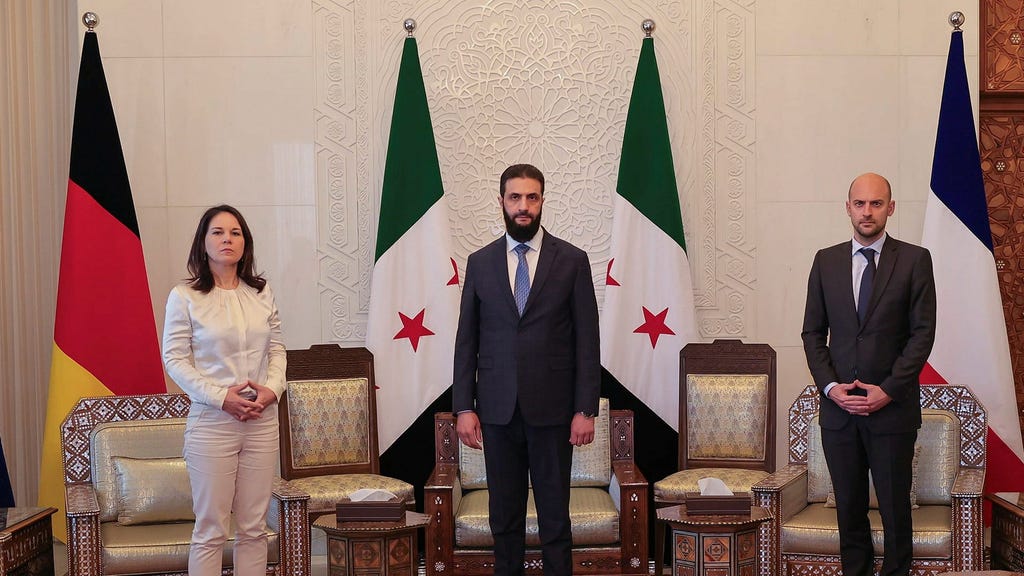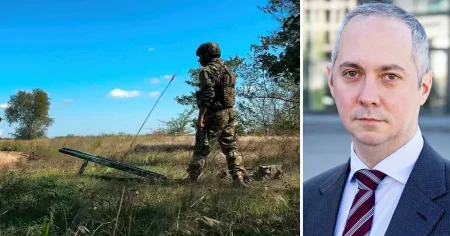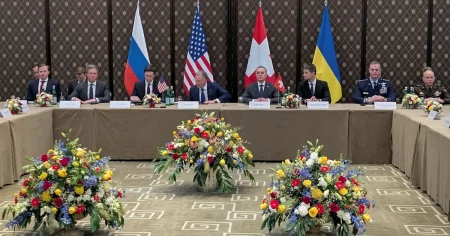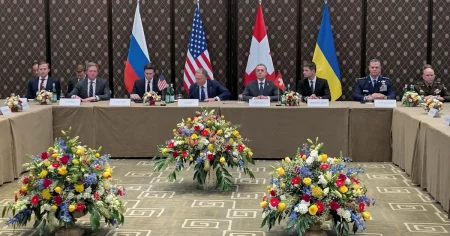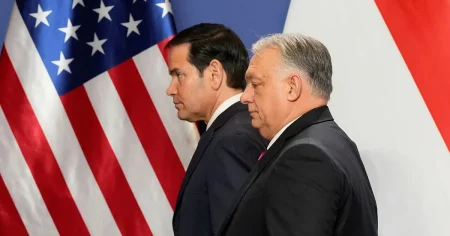Annalena Baerbock, Germany’s Foreign Minister, and her French counterpart, Jean-Noël Barrot, embarked on a diplomatic mission to Damascus, marking the first visit by EU foreign ministers since the ousting of Bashar al-Assad. Their meeting with Syria’s new leader, Ahmed al-Sharaa, was fraught with anticipated tension stemming from pre-meeting intelligence suggesting al-Sharaa would refuse to shake Baerbock’s hand due to her gender. In a display of solidarity, Barrot planned to abstain from the customary handshake as well. However, the carefully orchestrated plan encountered an unexpected hitch. While Barrot initially indicated his intention to forgo the handshake, al-Sharaa extended his hand insistently, leading to a brief, hesitant touch of fingertips between the French minister and the Syrian leader. This awkward encounter immediately became a focal point of media attention, raising concerns about the new regime’s stance on women’s rights and its potential drift towards fundamentalist policies.
The incident, laden with symbolism, underscored a critical aspect of Baerbock and Barrot’s mission: advocating for women’s rights. The refused handshake was swiftly seized upon by German media, with headlines like ”A Feminist and an Islamist Meet” and ”New Ruler Denies Baerbock a Handshake!” capturing the prevailing sentiment. While Baerbock later stated that al-Sharaa did shake her hand during their farewell, this interaction occurred away from the cameras, diminishing its impact in the public eye. The incident served to amplify existing anxieties within the EU about the direction of Syria’s new leadership. The symbolism of the rejected handshake fed into broader concerns that Syria, under its new Islamist government, could adopt a hardline, fundamentalist approach akin to that seen in neighboring Iran.
The seemingly minor act of refusing a handshake took on significant weight, becoming a proxy for larger political and social issues. Experts viewed the incident as a potential harbinger of a conservative shift in Syrian politics, potentially impacting women’s rights and international relations. The fact that al-Sharaa’s action deviated from established Syrian traditions further fueled these concerns. Volker Perthes, director of the German think tank Stiftung Wissenschaft Politik (SWP), voiced his apprehension, comparing the incident to similar practices in countries like Iran and Saudi Arabia where conservative religious interpretations influence social interactions and often restrict women’s roles in public life. Perthes’ comments highlighted the potential for this incident to become a precedent, further marginalizing women in Syrian society. He also expressed hope that al-Sharaa would face criticism for his actions within Syria, indicating a desire for internal pressure to mitigate such displays of gender discrimination.
The incident unfolded against a complex backdrop of ongoing debates within Germany regarding the potential repatriation of Syrian refugees. With the cessation of processing asylum applications from Syria in many EU countries, including Germany, conversations around the possibility of encouraging refugees to return home were gaining traction. The handshake incident, however, cast a long shadow over these discussions, raising questions about the safety and inclusivity of the environment to which Syrian refugees might be returned. The perceived conservative shift in Syrian society, symbolized by the refused handshake, sparked concerns about the potential challenges women, in particular, might face if they were to return to Syria.
This seemingly trivial diplomatic gesture took on outsized significance, becoming intertwined with several critical issues. It ignited a debate about gender equality and women’s rights in Syria, fueled anxieties about the trajectory of the new Syrian government, and complicated discussions around the future of Syrian refugees. The incident transcended a simple breach of diplomatic protocol; it became a microcosm of the larger political, social, and humanitarian challenges facing Syria and the international community. The seemingly small act became a powerful symbol, sparking discussions and debates that reached far beyond the immediate diplomatic encounter.
The Baerbock-al-Sharaa handshake incident exemplifies the complexities of international diplomacy, where even seemingly minor gestures can carry significant cultural and political weight. The act, or rather the refusal to act, became a lens through which larger issues were examined – the role of women in society, the evolving political landscape of Syria, and the ethical considerations surrounding refugee repatriation. This single event underscored the intricate interplay between cultural norms, political posturing, and the challenges of navigating a volatile international landscape. The handshake that didn’t happen resonated far beyond the confines of the meeting room, prompting crucial conversations about human rights, political change, and the future of a nation grappling with transition and uncertainty.





